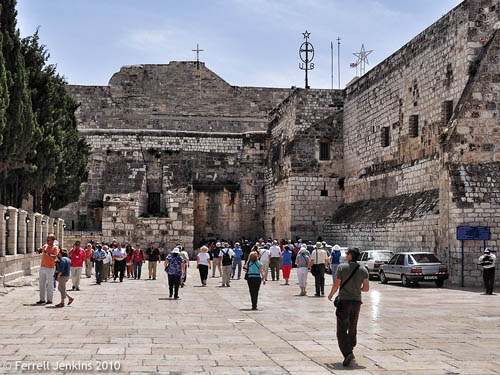To Read
Come to Me, all you who labor and are heavy laden, and I will give you rest. Take My yoke upon you and learn from Me, for I am gentle and lowly in heart, and you will find rest for your souls. For My yoke is easy and My burden is light.
—Matthew 11:28–30
To Consider
For me, religion always came up short. Sometimes I found it confusing and frustrating. I felt I could never be good enough for God to accept me, and I was never sure how good I had to be in order to be good enough. I misunderstood, though, the vast difference between religion and Christ.
In the above verses, Jesus Christ invited those who “labor and are heavy laden” to come to Him. The two major religious factions of Christ’s day laid down an enormous amount of regulations to follow in order to be accepted by God. The religious leaders insisted upon enforcing an endless list of dos and don’ts. One of those regulations even stipulated certain days on which you couldn’t hit a donkey with your whip! You can imagine how confusing, tiring, and frustrating those regulations were.
Christ was passionate that we understand how different His instructions are. The word yoke refers to a wooden frame placed upon the shoulders that makes a burden easier to bear. In the verses above yoke refers to Christ’s instructions on how to live a life pleasing to God. Why is His yoke so different?
First, you’ve been saved through your personal faith in Christ, so you’re not living for Him in order to be accepted by God. You’re living for Him because you’ve already been accepted. Second, you’re living for someone who is “gentle and lowly in heart”—humble, not haughty. That kind of person is easy to follow. Third, while He is teaching you how to live, He’s right there giving you strength. That’s why He exclaimed, “My yoke is easy. My burden is light.”
If you do wrong, He’s sympathetic and understanding, forgiving you and helping you to be stronger next time. Living for Him becomes a delight, not a duty, because living for Him is centered on a relationship, not regulations. Religion can be burdensome. A relationship with Christ is a relief.
To Illustrate
A book called Mushrooms on the Moor contains the story of a believer who knew that at the center of the Christian life was a relationship with the One who had died for him. Eventually, the believer became ill and was confined to bed. A document was brought to him that required his signature. He took a pen and held it for a long moment, signed the document, then fell back upon his pillow, dead. It then became obvious how grateful that believer was for the Savior and how privileged he felt to live for Him. On the paper the believer had written not his own name but the name Jesus—the One he was about to see face to face.
To Meditate
Religion focuses on the regulations you must follow to be accepted by God. The Christian life focuses on your relationship with God, a relationship made possible because, through Christ, He has accepted you.
To Pray
Take a moment to praise God for bringing you into an eternal relationship with the Savior. Give Him thanks that you can now live for Him out of gratitude and delight.
This blog post has been adapted from the book 31 Days to Living as a New Believer.




Thank you for your great blog!
In your blog today you mentioned “If you have more interest in learning about the origin of the celebration of Christ, take a look here.” I looked there and found your article “What About Christmas” where you said you don’t know of anyone claiming Christ was born on Dec 25 before Chysostom. Both Jack Finegan (Handbook of Biblical Chronology, p. 325) and Harold Hoehner (Chronological Aspects of the Life of Christ, p. 25) say that Hippolytus of Rome (AD 170-240) held that Christ was born on December 25th.
In your article “What About Christmas” you argue that December 25th was chosen because of the pagan holiday associated with that date. You might consider some of the arguments against this widely held view that are given by Andrew McGowan in his article “How December 25th Became Christmas” (Bible Review, December 2002). He gives three arguments why the date of Christmas was not chosen based on pagan festivals and then proposes why it was. McGowan says that the “first mention of a date for Christmas (c. 200) and the earliest celebrations that we know about (c. 250-300) come in a period when Christians were not borrowing heavily from pagan traditions.” You may find his article convincing. I think it is worth a read.
Thanks for your note of appreciation for the blog, and the well-worded thoughts on the origin of the Christmas celebration. The article you read is a brief summary written for a small publication a few years ago. More details are available in the paper on “The Truth About Christmas.” I think the historical setting and documentation is set forth there.
I have the sources you mentioned. The note about Hippolytus (AD 170-240) is especially appreciated. Even if this were a universal belief at the time it is about 200 years after the time of Christ and his apostles.
My main point has nothing to do with the birth of Christ and our worship of Him as Lord and King. It has to do with limiting this celebration to a single day each year.
At some later point I will spend more time with McGowan’s argument about pagan borrowing. My understanding of the historical setting is that the church became more and more like the society around them — a danger God’s people have always faced.